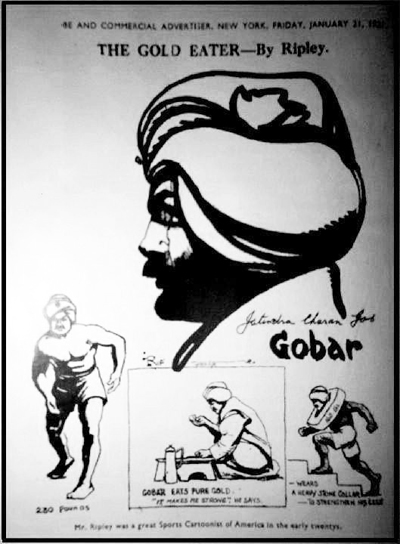Physical Cultures: Bengal and Beyond (21-22 Feb, 2014)
School of Cultural Texts and Records, Jadavpur University, Kolkata, India

In the centuries following the incorporation of ritualized (and often combative) physical training into community-based lives of hunter-gatherers, nomads, and agricultural populations of the pre-historic world, the term ‘physical culture’ has seen many uses in the cultural imagination of various peoples and cultures. In Western societies, since Plato’s famous prescription of gymnastikê (“physical training” as a form of moral education for guardians of his dream republic), some understanding of ‘physical culture’ has invariably accompanied negotiations of the community and the self.
From its traditional uses in imbibing personal virtue and political balance in the individual and the community through informed explorations in ancient combative and performative traditions, ‘physical culture’, especially after the coming of industrial capitalism, has been understood as a by-word for contemporary conventions regarding athleticism, physical beauty, and consumerist narcissism, as well as the participatory ethos of Nazi mass cultural parades, and military and quasi-military marches inspired by Western conceptualizations of nationalism and the nation-state.
In non-Western societies, however, and especially in traditional Asian societies, the ambit of ‘physical culture’ has been much wider: removed from the conceptual dichotomies of the mind and the body, the individual versus the community, the ‘rigour’ of academics versus the ‘acrobatics’ of plebeians and proles, and so on; it has been understood as inseparable from an individual’s experiential journeying through life and the universe where the ‘physical’ aspect is coterminous with the educational objectives of virtue and intellectual achievement of the journey, while reaffirming the individual’s bonds with the traditional community and the natural world. The aim of this conference and workshop is to look beyond the functional Western description of physical culture, and locate diverse practices of physical culture in non-Western societies, with particular focus on historical Bengal.
This conference is part of a project titled ‘Physical Cultures of Bengal’, being carried out by the School of Cultural Texts and Records, Jadavpur University, and supported by the ‘University with Potential for Excellence-Phase II’ scheme of the University Grants Commission, India. The conference aims to bring together researchers as well as practitioners of physical cultures, both traditional and contemporary. Though the focus of the conference is Bengal, paper proposals on other regions are also welcome. Papers on the following areas of physical cultures are particularly welcome:
- Feats of strength, body-building, and weightlifting
- Traditional wrestling
- Circus and acrobatics
- Stick, sword, and knife fighting arts
- Indigenous martial dance forms such as Bratachari, Raybenshe
- Ju-jitsu, Aikido
Along with the papers, it is expected that there will be demonstrations of the endangered indigenous Bengali martial dance form Raybenshe, as well as more contemporary martial art forms such as Aikido.
The conference will be graced by the presence of Sri Bishwanath Dutta, one of the direct disciples of the legendary Bengali wrestler Gobor Goha.
Paper proposals should be sent by 15 December 2013, to any or all of the following addresses: Abhijit Gupta (offog1@gmail.com); Nikhilesh Bhattacharya (nikhilesh1981@gmail.com), and Deeptanil Ray (deeptanilray@gmail.com).







